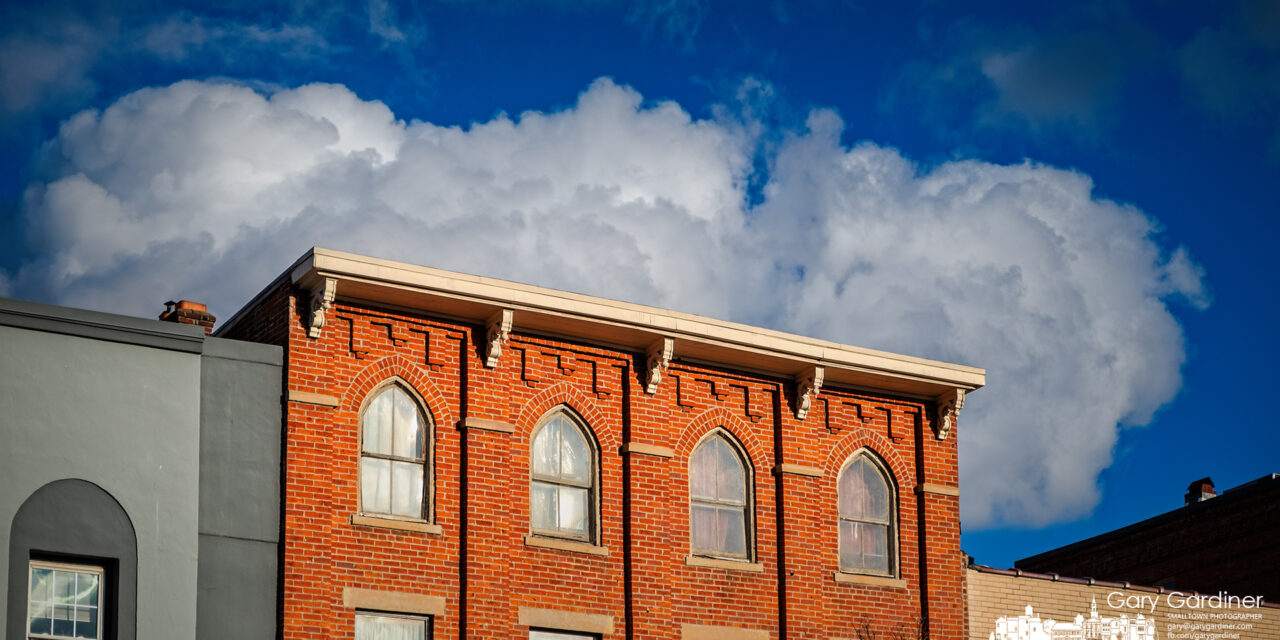John Gatiss – City Council Candidate
What motivated you to run at this moment in Westerville’s development?
Our country and state are in crisis. We desperately need more people in office who are going to fight, not just against the dysfunction in Washington and in downtown Columbus, but also against the status quo. People desperately want to see their elected officials fighting with the urgency of now to make improvements in their day-to-day lives. Many people feel like the government just isn’t working for them, and unfortunately that extends to the Westerville city government as well. We need a city government that will protect people and defend our shared values. We need bold new leaders who will fight for improvements in quality of life, for good government, and for our future.
What have you heard from residents that’s challenged or reshaped how you view the city’s priorities?
Earlier during the campaign, I was surprised to hear from residents about the problems with rodents and other pests in Uptown Westerville. We need a greater focus on public health and sanitation to solve this and other local environmental problems.
What do you believe Westerville needs to hold onto as it continues to grow?
We need to protect and enhance Uptown Westerville as the city’s historic core. It’s an irreplaceable part of the community where development needs to be carefully managed.
How do you approach decisions that create winners and losers, like development projects that benefit one part of the city over another?
All development projects eventually benefit the entire city. Projects that attract new jobs and build new housing provide income tax and property tax revenue that can then be used to fund capital improvements or services across the entire city. Investment in any part of the city helps generate revenue that supports all parts of the city.
What does a balanced approach to growth look like to you?
Balanced growth should include a mix of uses, not only offices, retail, or industrial, but also residential. Balanced growth should also include a mix of new development and redevelopment. The pace of growth also should be such that change happens gradually so that growth can meet the changing needs of the community. Much of Westerville’s recent growth has been tilted toward offices and retail rather than housing.
When you think about the East of Africa project, what’s your biggest hope—and your biggest concern?
My hope is that the East of Africa project as built includes more residential and multiuse components. My biggest concern is that the project ends up just being an eastward expansion of Westar. Although the Westar development is generating more income tax revenue for the city, most of it is not being fully utilized outside the core work day. The goal for the East of Africa project should be to attract more complementary uses that will use the buildings and associated parking more than 8 hours a day.
How do you respond to residents who feel that older neighborhoods are being left behind?
This is a valid concern. Westerville should track its capital projects (e.g., roads/sidewalks, electric grid, water/sewer, and parks) by neighborhood to ensure that over the course of several years the investments are equitable, while being mindful that some older neighborhoods may require more investments than newer ones. Other cities have created dedicated funds that the neighborhoods themselves decide how to spend. Setting up similar funding in Westerville could be a way to ensure that specific neighborhood priorities are being addressed.
What’s one way you would bring more public insight or influence into large-scale planning decisions?
There are public meetings and hearings, but they aren’t always well attended. Some of these are recorded, but the videos end up buried on the city website. We need to meet people where they are and fit engagement into people’s busy lives. Other cities livestream or post meeting videos to social media (e.g., Facebook or YouTube) to make them more broadly accessible. Westerville should do the same. Combined with online comment forms or polling apps, this could be a way for residents to more flexibly provide their input for large-scale and other types of planning decisions.
How do you see the city’s current zoning code affecting the range of housing types available, including for first-time buyers and renters?
Westerville is essentially land-locked with a limited amount of open land available for development. The zoning code should require or incentivize more multiuse development that builds upward. Westerville should not be building new single-story offices or retail (i.e., strip malls) and instead should be pushing for apartments above new retail. The development of single-story retail on Polaris Parkway over the last 15 to 20 years has been a missed opportunity to build more housing units. Given the limited amount of open land available for development, there probably will not be a significant number of new free-standing single-family homes built in Westerville that could target first-time buyers. However, allowing smaller lot sizes possibly could provide some space for the development of more starter homes.
How should city leaders weigh resident identity and neighborhood character against financial returns?
Much of Westerville’s development is happening or is planned to happen outside of the denser and primarily residential neighborhoods, so I don’t see neighborhood character and financial returns as being at odds in many places. The parts of Westerville that are agricultural in character are the most likely to significantly change. Other neighborhoods are likely to remain largely the same. As a part of a major metro area, all of the open land in Westerville (e.g., East of Africa) will eventually be developed unless preserved as a park or other open space. However, where neighborhood character is set to change, there should be buffers and smooth transitions between uses wherever possible.
What kind of partnership should exist between council and residents, not just legally, but in spirit?
Residents are hungry for more dialogue with the council. If I am elected, I will provide that type of engagement. In addition, I support the creation of more boards and commissions so that more residents can serve and provide input on the issues that matter most to them.
What would success look like for you as a council member, in both policy and relationships?
If I can help improve people’s day-to-day lives by championing policy changes and other actions while maintaining transparency and building trust, then I would consider that success.
What do you want future residents to thank this council for?
I hope that future residents will thank the upcoming council for planning for the future by making progress on housing and renewable energy to help control the cost of living now and further into the future.
What was not asked in this questionnaire that needs to be answered?
Good question. There were several questions about zoning, housing, and development, but there were no questions about renewable energy or climate change. Data centers are creating upward pressure on electricity costs, including in central Ohio. As a municipal electric utility, Westerville has contracts to purchase power through about 2030. Over the next few years, Westerville should make significant local renewable energy investments on our own grid (beyond the commitment that this council has already made), so that we will have more direct control over our electricity costs. This is not only good for the environment but also will help keep utility costs lower for Westerville residents and businesses now and into the future.


